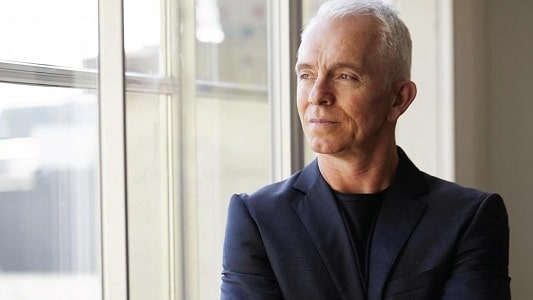Emotional Intelligence, also known as the Emotional Quotient or EQ, is your ability to understand, manage, and effectively express your own feelings, alongside interpreting and navigating the emotions of others.
It is crucial in fostering healthy relationships, empathizing, making balanced decisions, and handling interpersonal dynamics proficiently.
It’s a pivotal aspect of both personal growth and professional development, impacting how you perceive and interact with the world around you, respond to challenges, overcome obstacles and build emotional resilience.

Key Takeaways
- Emotional Intelligence (EQ or EI) coaching is a powerful tool for personal and professional growth.
- The best EI coaches have extensive experience, proven methodologies, and relevant certifications.
- A checklist can help you choose the right EI coach for your needs.
10 Best Emotional Intelligence Coaches [Current Year]
Sarah Blake

Sarah Blake has 20 years of experience bridging behavioral science with emotional intelligence to impact company culture, empower emerging leaders, and drive growth. She takes a deep dive into an organization’s internal culture and branding to influence external culture, branding, and marketing.
Sarah uses a human-centered approach to organizational change, increasing adaptability and change retention. She is passionate about connecting with people and how they adapt to change, providing change-making leadership to companies looking to shift their story, reframe their messaging, and connect with their audience in new, meaningful ways.
S.Michele Nevarez

S. Michele Nevarez is the Founder and CEO of Beyond EI’s Coaching and Training programs, with a vision to democratize Emotional Intelligence. She has designed programs that translate EI from theory to a practical vehicle for meaningful transformation and lasting habit change.
Michele brings 25+ years of executive leadership experience across various industries. She has been studying Tibetan Buddhist philosophy and practicing its contemplative meditation practices for 29 years. Michele holds a B.A. in Religion and a Master of Science degree in Positive Organizational Development and Change.
Svetlana Whitener

Svetlana Whitener is an expert at coaching clients to accomplish desired outcomes and achieve performance objectives through the use of assessments, metrics, and other tools geared to enhance Emotional Intelligence. She has over 25 years of corporate leadership experience and 20+ years of personal development experience.
Svetlana has an MBA and BS in Organizational Development and has worked with a major Russian corporation and The Coaches Training Institute (CTI) in the United States. She founded her own company, InLight Coaching, in 2007 and has logged more than 5,000 coaching hours. Svetlana holds ten coaching certifications, including Master Certified Coach (MCC) and Certified EI Executive Coach (EQCC).
Susan Clarine

Susan Clarine is a dedicated professional with a deep interest in emotional intelligence and its application in creating better leaders, more engaged teams, and healthier, happier workplaces. She has over two decades of experience in leadership development, talent management, and coaching.
Susan uses scientifically validated assessment tools to help clients gain clarity, generate ideas, and maintain positive momentum. She is also a sought-after guest speaker, sharing insights from neuroscience, happiness, and well-being research. Her clients come from diverse industries, including finance, health services, higher education, non-profit, professional services, and technology.
Carolyn Stern

Carolyn Stern is a certified Emotional Intelligence and Leadership Development Expert, professional speaker, and university professor. She specializes in helping professionals become emotionally strong. Carolyn’s emotional intelligence courses and modules have been adopted by top universities in North America.
She has launched a new division of her business, EI Experience, which creates comprehensive learning and development experiences for corporations. Carolyn is also a popular local and international speaker, teaching professionals about emotional intelligence across the globe.
Dr. Martyn Newman

Dr. Martyn Newman is a clinical psychologist who specializes in Emotional Intelligence (EI) and Mindfulness. He is the author of the best selling book “Emotional Capitalists” and newly released “The Mindfulness Book”. Dr. Newman is the co-founder of RocheMartin and also serves as the company’s managing director.
He has developed the Emotional Capital Report™, the world’s most scientifically valid measure of emotional intelligence and leadership. Dr. Newman’s expertise is sought globally by corporations and professional firms for his practical focus on performance improvement.
Maureen Moriarty

Maureen Moriarty, MA in Applied Behavioral Science in Consulting/Coaching in Organizations, has over 30 years of leadership experience in designing and implementing business strategies and leading teams. She is a professional accredited coach of the prestigious Hudson Institute of Santa Barbara and has taught leadership/team development courses.
Maureen is considered an expert coach in the arena of emotional intelligence and is a popular Seattle business columnist. She is also a regular speaker/presenter for business organizations and leadership conferences throughout the Northwest.
Susan Dutton

Susan Dutton is a seasoned leader with over 30 years of experience in designing and implementing business strategies and leading teams. She is an accredited coach of the Hudson Institute of Santa Barbara and has taught leadership and team development courses at the University of Washington and Bellevue College.
Known as Seattle’s expert coach in the arena of emotional intelligence, Susan is also a popular Seattle business columnist. Her trainings are highly regarded, often described as the “best training I have ever attended” by participants.
Philip Gimmack

Philip Gimmack is an emotional intelligence expert and EQ coach with over 20 years of experience. He specializes in identifying and developing the leadership skills needed by individuals and their teams. Philip combines significant psychological and corporate experience, providing unique insights into developing high performers who are agile at managing change.
He established EQworks in the UK in 2012 to conduct research into how EQ builds performance. His corporate experience as a management consultant and project manager has given him a deep understanding of how organizations should manage change and leadership.
Sandy Peoples

Sandy Peoples is a Professional Transformational Coach, Emotional Intelligence Coach, and a Master’s NLP Practitioner. She helps people struggling in their job or career, in unhealthy relationships, or with wellness and body issues.
Sandy uses professional coaching processes, mindfulness work, and emotional intelligence in her approach. She has been recognized as a top emotional intelligence coach by Coachfoundation.
The Benefits of Hiring an Emotional Intelligence Coach
Opting for an Emotional Intelligence coach can yield transformative results. Coaches provide:
- Personalized approach to enhancing EQ
- Objective insights and feedback
- Development of effective emotional management strategies
- Achievement of personal and professional goals
Impact of EQ on Personal Development
- Improved relationships
- Better decision-making
- Enhanced mental well-being
Impact of EQ on Professional Development
- Improved leadership skills
- Better work environment
- Increased productivity and job performance
By integrating emotional intelligence into both personal and professional domains, you stand to gain a life enriched with balanced emotions, deeper connections, and a more nuanced understanding of yourself and others.

How To Train Emotional Intelligence?
To train and build emotional intelligence, one must embark on a journey of self-discovery, self reflection, and continuous learning. It involves delving deep into one’s emotions, understanding how to manage them, and learning how to empathize with the emotions of others.
Skills of an Emotional Intelligence Coach
An Emotional Intelligence Coach is proficient in facilitating the development of:
- self-awareness,
- self-regulation,
- motivation,
- empathy,
- and social skills.
They possess the ability to gauge the emotional states and needs of their clients, helping them to navigate through their emotional landscapes effectively and form healthier interpersonal relationships.
Tools And Methodologies For EQ Coaching
EQ coaches utilize a plethora of tools and methodologies to help individuals enhance their emotional intelligence. These include:
- personalized assessments to identify emotional competencies,
- interactive exercises to develop emotional understanding,
- and structured reflection activities to foster emotional management and regulation.
By leveraging these approaches, coaches can create bespoke developmental plans that cater to the unique emotional needs and goals of each individual, facilitating profound and lasting emotional growth and well-being.

Is Emotional Intelligence In Demand?
Emotional Intelligence, or EQ, is undoubtedly in high demand in today’s fast-paced, interconnected world, both in personal and professional realms. As individuals and organizations acknowledge the profound impact emotional competency has on leadership, decision-making, and interpersonal relationships, the demand for cultivating it has surged.
People are increasingly seeking to:
- understand and manage their emotions better,
- improve their ability to relate to others,
- and enhance their capacity to cope with stress and daily challenges.
Recognizing and responding to our own and others’ emotions is a critical life skill that fosters resilience, empathy, and overall well-being.
Best Emotional Intelligence Coaching Certification
If you’re seeking personal or professional growth, getting certified in Emotional Intelligence Coaching could be a game-changer.
One of the top certifications to consider is the Emotional Intelligence Coaching Certification – Goleman EI. This program is led by Daniel Goleman, a renowned expert in the field of emotional intelligence coaching. It provides comprehensive training to help you guide others through their emotional journeys.
Another excellent option is the Leading With Emotional Intelligence program by Dr. Relly Nadler. This course teaches you how to lead with emotional intelligence, a skill that’s increasingly recognized and valued in the workforce.
Always a good option is an ICF Certificate. ICF Coaching Certificates have the highest reputation in the industry. Check out our guide about the Best ICF Certification Programs.
Checklist: Selecting the Right Emotional Intelligence Coach
When exploring the prospect of working with an Emotional Intelligence coach, having a clear and concise checklist can significantly assist in selecting the right coach who aligns with your goals, preferences, and values.
- Define Your Objectives and Goals
- Clarify what you hope to achieve with coaching
- Research and Evaluation
- Examine coaches’ credentials and experience
- Evaluate client testimonials and reviews
- Initial Consultation
- Assess the compatibility with the coach’s approach
- Clarify expectations and commitments
- Investment: consider your budget

Related: 30 Signs You Are An Emotional Masochist & What To Do
How Do I Become A Mindset And Emotional Intelligence Coach?
Becoming a Mindset and Emotional Intelligence Coach involves a few key steps:
Education: Start your coaching journey by gaining a solid understanding of psychology, particularly areas related to emotional intelligence and mindset. This could involve taking relevant courses or earning a degree in psychology.
Certification: Look for a reputable certification program that focuses on mindset and emotional intelligence coaching. This will provide you with the necessary coaching skills and knowledge to effectively coach others. Programs such as the Emotional Intelligence Certification – Goleman EI and Leading With Emotional Intelligence program by Dr. Relly Nadler are excellent options.
Experience: Gain experience by working with a variety of clients. This could involve offering your services on a volunteer basis initially to build up your client base and testimonials.
Continued Learning: The field of emotional intelligence is always evolving, so it’s important to stay up-to-date with the latest research and developments. This could involve attending workshops, webinars, or conferences, doing online courses or reading relevant books and articles.
Emotional Intelligence Coach Salary
Emotional Intelligence Coaches can earn a substantial income. For instance, an Emotional Intelligence Coach can earn an estimated $60K-$134K a year. Moreover, every point increase in emotional intelligence can add $1,300 to an annual salary. Therefore, investing in becoming an Emotional Intelligence Coach can be financially rewarding.
Emotional Intelligence Assessment Tools
Overview of reliable EQ assessment tools
Emotional intelligence assessment tools are indispensable for pinpointing one’s emotional strengths and areas needing development. Reliable tools like the Emotional Intelligence Appraisal and the Bar-On Emotional Quotient Inventory (EQ-i) offer nuanced insights into individuals’ abilities to navigate their own and others’ emotions effectively. Here are some reliable Emotional Intelligence (EQ) assessment tools:
- Very Well’s EQ Test
- Psychology Tools’s EQ Test
- Harvard Business Review Test
- PsychTests’ EQ Test
- Alpha High IQ Society Test
- University of California, Berkeley Test
- MindTools Test
- University of Central Florida EQ Test
These tests can help you understand your emotional intelligence better and identify areas for improvement.
The role of these tools in the coaching process
In the coaching process, these tools serve as a foundational element, helping to shape personalized coaching strategies and interventions.
By identifying specific emotional competencies and challenges, coaches can tailor their approach to address the unique needs and goals of each client, fostering more profound and sustainable emotional growth and learning.
Benefits of regular EQ assessment
Undertaking regular EQ assessments is highly beneficial. It allows for the monitoring of developmental progress and the effectiveness of interventions, ensuring that the coaching process remains aligned with evolving emotional intelligence goals.
Regular assessments also empower individuals by providing them with actionable insights, enabling them to take proactive steps towards enhanced emotional well-being and interpersonal success.
Related: Remorse Vs Regret Vs Guilt: Differences Easy Explained
Best Questions to Ask and to Expect in Your Emotional Intelligence Coaching Sessions
Questions to Ask Your Coach:
- How can I better understand my emotional reactions and triggers?
- Can you help me in identifying my emotional strengths and weaknesses?
- How can I improve my ability to manage stress effectively?
- What strategies can assist me in maintaining positive relationships, both personally and professionally?
- How can I enhance my empathetic listening skills?
- Can you recommend exercises to improve my emotional self-regulation?
- How can I develop a more positive mindset and outlook?
- Can you suggest techniques to improve my decision-making under pressure?
- How can I become more adept at recognizing others’ emotions and responding appropriately?
- Can you assist me in setting achievable emotional intelligence goals?
Questions to Expect from Your Coach:
- How do you typically respond to stressful situations?
- Can you describe a situation where you successfully managed your emotions under pressure?
- How do you usually handle feedback, both positive and negative?
- Can you recall an instance where you helped resolve a conflict?
- How often do you reflect on your emotional responses and behaviors?
- In what ways do you currently practice self-care and stress management?
- How do you nurture and maintain your relationships?
- Can you describe how you empathize with others’ perspectives and feelings?
- How do you approach challenges and obstacles in your personal and professional life?
- Can you provide examples of how you’ve used emotional information in your decision-making processes?
Remember, these sessions are a two-way street. Both you and your coach should be active participants, asking and answering questions to facilitate growth and understanding in emotional intelligence.

Frequently Asked Questions
What is An Emotional Intelligence Life Coach?
An emotional intelligence life coach is a certified professional who assists individuals in recognizing and managing their emotions effectively. They facilitate the enhancement of one’s emotional intelligence (EQ) to improve relationships, decision-making, and overall well-being.
What is An Emotional Wellness Coach?
An emotional wellness coach aids individuals in navigating their feelings, managing stress, and maintaining emotional stability and positivity. They employ various techniques and strategies to foster emotional balance and resilience, thereby contributing to overall mental wellness.
Related: The Power Of Non-Reactivity: 13 Ways To Learn It
How Much Do Emotional Intelligence Coaches Make?
The earnings of emotional intelligence coaches can vary widely, depending on their level of experience, certification, and location. Typically, they might charge anywhere from $75 to $350 per hour, with experienced coaches possibly earning more due to their advanced skills and reputation.
What Are the 4 Types of Emotional Intelligence?
The four main components of emotional intelligence are:
- self-awareness, which involves recognizing one’s own emotions;
- self-management, which entails controlling one’s impulses and regulating emotions;
- social awareness, which refers to understanding others’ emotions;
- and relationship management, which involves maintaining healthy interpersonal relationships.
How does building Emotional Intelligence contribute to professional development?
Building emotional intelligence not only elevates your ability to manage emotions and foster positive relationships but also enhances leadership skills and teamwork, crucial for career advancement and creating healthier, happier workplaces.
Can Emotional Intelligence training aid personal growth?
Absolutely. Emotional intelligence training promotes self-awareness and emotional management, which facilitate personal growth by helping you navigate through stress and challenging situations, fostering well-being and cultivating positive relationships.
How does Emotional Awareness impact daily life and relationships?
Emotional awareness allows you to comprehend your own emotional intelligence and that of others, managing interactions and responses effectively to nurture and sustain positive, healthy relationships in both personal and professional spheres.
Is there a structured process to improve Emotional Intelligence?
Yes, through tailored coaching sessions with an emotional intelligence coach, clients explore and enhance self-awareness, regulate emotions, and implement strategies to manage interactions and relationships efficiently, thereby building their emotional intelligence.
How does Emotional Intelligence coaching certification benefit a coach?
Acquiring an emotional intelligence coaching certification equips a coach with essential skills and methodologies to facilitate clients’ EQ development, ensuring they are adept in harnessing EQ for effective leadership and personal growth.
What does Emotional Intelligence coaching involve?
Emotional intelligence coaching involves working one-on-one with a client, utilizing various various coaching approaches and methods to enhance their understanding of emotions, helping manage their responses to stress, and building skills for positive change in relationships and decision-making.
Can EQ coaching improve leadership skills?
Definitely. EQ coaching amplifies leadership development by honing skills like empathy and social awareness, enabling leaders to navigate team dynamics proficiently, manage stress, and inspire high performance within their teams.
How does Emotional Intelligence correlate with effective communication?
High emotional intelligence equips individuals with the ability to interpret and respond to non-verbal cues, understand emotions—both their own and others’—and communicate in a manner that is empathetic and conducive to maintaining positive and effective communication channels.
